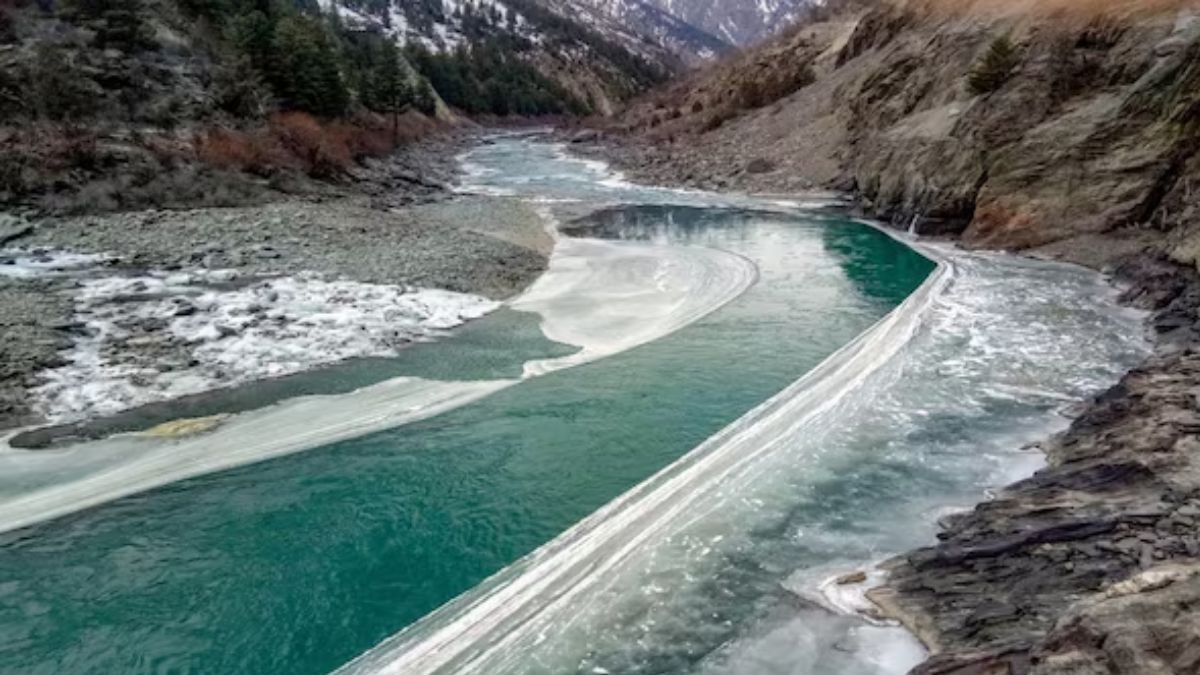In a bid to reinforce its strategic partnership with Islamabad, China has announced an accelerated timeline for the construction of the Mohmand dam in Pakistan’s volatile Khyber Pakhtunkhwa province. The announcement came days after India suspended the decades-old Indus Waters Treaty (IWT), leaving Pakistan grappling with uncertainty over a critical source of its freshwater supply.
India’s decision to revoke the 1960 agreement, triggered by the deadly April 22 Pahalgam terror attack allegedly planned on Pakistani soil, marks a sharp escalation in bilateral tensions. New Delhi has argued that the treaty cannot coexist with Pakistan’s continued support for terrorism, citing three wars and numerous cross-border attacks as violations of the treaty’s spirit.
In this backdrop, China’s move to fast-track work on the Mohmand hydropower project appears to be a calibrated diplomatic signal. According to China Central Television (CCTV), state-owned China Energy Engineering Corporation has begun concrete filling work — a “critical construction milestone” on the project, which is scheduled for completion by 2026.
This multipurpose project, situated on the Swat River, is slated for completion next year and is designed to generate 800 MW of electricity, control floods, enhance irrigation and provide approximately 113 billion liters of drinking water daily to Peshawar.
The rapid acceleration of the Mohmand Dam, a flagship initiative under Beijing’s multibillion-dollar China-Pakistan Economic Corridor (CPEC), aligns with China’s broader diplomatic support for Islamabad amidst heightened tensions with India.
Can Pakistan protect Chinese interests?
The viability of the Mohmand Dam as a definitive solution for Pakistan’s water woes is heavily contingent on the security of Chinese workers, who have become frequent targets of extremist groups. The Tehreek-e-Taliban Pakistan (TTP), also known as the Pakistan Taliban, along with Baloch separatists, pose a significant and persistent threat to Chinese interests and personnel in Pakistan.
Since 2021, at least 20 Chinese nationals have been killed in targeted attacks by the TTP and Baloch separatists, according to Pakistan’s National Counter Terrorism Authority (NACTA). These attacks occurred across Khyber Pakhtunkhwa, Balochistan, and Sindh — all provinces with significant CPEC footprints.
Impact Shorts
More ShortsThe TTP, formed in 2007, is ideologically aligned with the Afghan Taliban and has expanded its footprint in Khyber Pakhtunkhwa since the Taliban’s return to power in Kabul in 2021. Pakistan recorded the highest number of militant attacks in a decade last year, most attributed to the TTP and affiliated groups. Although Baloch separatists remain the primary threat to Chinese workers and assets, the TTP’s growing presence is a major concern.
During a recent three-day visit to Beijing by Pakistani Foreign Minister Ishaq Dar, China reaffirmed its support for Pakistan’s sovereignty and territorial integrity, calling the country its “ironclad friend.” However, despite high-level assurances and diplomatic optics, the safety of Chinese workers on the ground remains precarious.
Roughly 20,000 Chinese nationals reside in Pakistan, most of whom are engaged in CPEC-related work. Their security is not just a bilateral issue, but one with implications for the future of regional cooperation and China’s Belt and Road Initiative.
Strategic gamble or lifeline?
With India tightening the Indus tap and Afghanistan building its own dams that threaten to further limit Pakistan’s access to upstream waters, Islamabad’s options for long-term water security are shrinking. In this context, the Mohmand dam could serve as a crucial buffer — but only if construction proceeds unhindered and the project is insulated from militant threats.
Pakistan’s bet on Chinese-funded infrastructure as a way to counterbalance India’s geopolitical moves may offer short-term gains, but the long-term sustainability of this reliance hinges on resolving internal security challenges and ensuring foreign partnerships translate into tangible, secure benefits for its people.
As Islamabad leans heavily on Beijing to secure its energy and water future, one question remains: Can dams alone hold water in the absence of trust, stability and regional cooperation?


)

)
)
)
)
)
)
)
)



